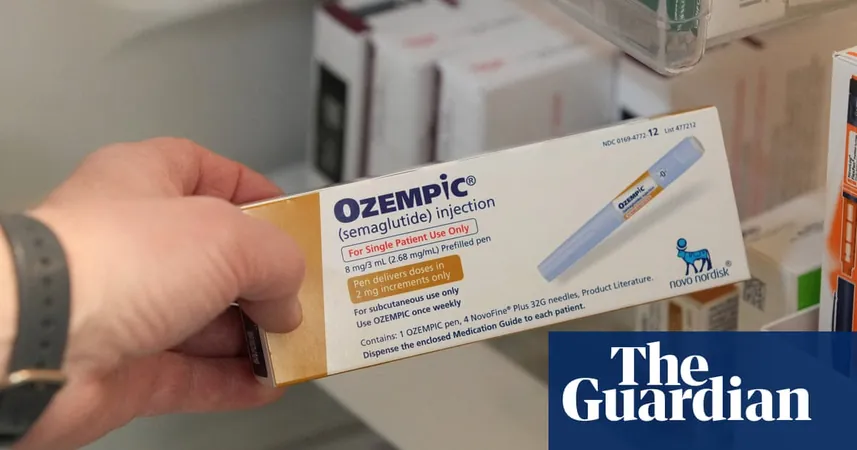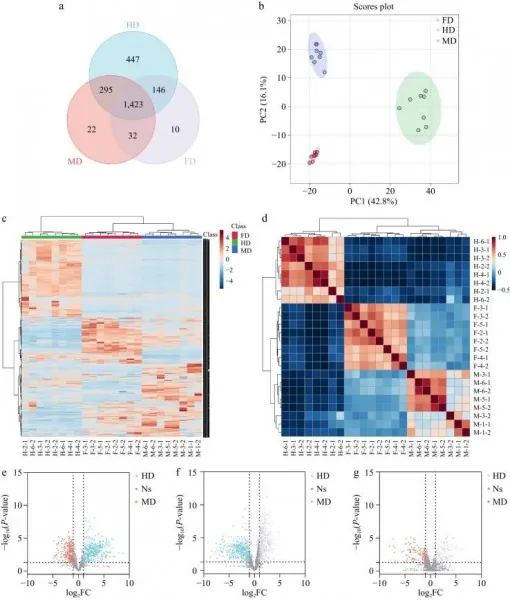
Health and Economic Impacts of Obesity: Are Weight-Loss Treatments Worth It?
2024-09-22
Health and Economic Impacts of Obesity: Are Weight-Loss Treatments Worth It?
A recent report reveals a staggering truth: the financial burden of obesity-related healthcare costs and lost productivity eclipses the expenses associated with innovative weight-loss medications. Governments are urged to tackle this escalating crisis proactively through initiatives promoting healthier diets and increased physical activity.
The research, conducted by ING Bank and highlighted by the Guardian, shows that the diabetes medication Ozempic, which has gained traction for weight loss, is more cost-effective than the secondary healthcare expenses attributed to obesity in countries like the UK, Germany, and the Netherlands. Although the price of Wegovy, another weight-loss injection, is steeper, both treatments remain economically advantageous compared to the broader societal costs of obesity.
Produced by Danish pharmaceutical giant Novo Nordisk, these GLP-1 receptor agonists are administered weekly and help individuals feel fuller, thereby supporting weight loss. The potential health benefits extend beyond weight control, with recent investigations pointing to additional improvements in overall well-being.
Obesity rates are reaching alarming levels globally, surpassing malnutrition cases. The introduction of GLP-1 drugs marks a critical step in reversing this trend; however, their efficacy over time raises concerns. The financial implications of obesity are profound, linking to a range of serious health complications such as heart disease, diabetes, and joint issues—all of which impose significant medical costs.
Diederik Stadig, an analyst at ING, estimates the annual economic toll of obesity in the UK to be around £100 billion, with a staggering £19 billion of that being attributed to the National Health Service (NHS). These healthcare expenses break down to approximately €1,700 (£1,400) per individual yearly in the UK, in contrast to €2,400 in Germany, €2,300 in the Netherlands, and around €2,500 in the US.
The financial burden of these weight-loss medications is substantial: a yearly supply of Ozempic costs approximately £830 in the UK, while Wegovy reaches £2,760. In Germany and the Netherlands, Ozempic is about €1,100, with Wegovy costing around €3,500. The US market sees even higher prices, reflecting the nation's notorious drug pricing issues.
While healthcare costs are significant, they represent only a portion of the overall economic impact of obesity. Additional expenses incurred by individuals, such as those related to special clothing, transportation needs, and adaptations for living spaces, contribute to the steep price tag society pays for obesity.
Stadig asserts that effective, long-term use of these medications could lead to healthier lifestyles, reduced productivity losses, and improved quality of life. The prospect of avoiding the discomfort of obesity and its associated conditions could also yield substantial financial savings for society.
Data from the Institute for Advanced Studies in Vienna shows that individuals with obesity are up to twice as likely to miss work, exacerbating labor shortages across Europe and posing significant challenges to economic stability. Thomas Czypionka, head of health economics at the institute, warns that obesity can precipitate over 80 different health conditions, highlighting its far-reaching implications.
Looking ahead, there is hope for more affordable obesity drugs as new treatments enter the market. However, the current reality necessitates that governments prioritize interventions for those at highest risk. Despite the promising nature of weight-loss drugs, Stadig points out that their long-term efficacy remains uncertain. Research indicates that individuals may regain two-thirds of their lost weight within a year after ceasing to take these medications. Side effects like nausea can also lead many to discontinue their use prematurely.
As doctors often recommend these drugs in tandem with diet and exercise plans, Stadig advocates for stronger government action to address the root causes of obesity. Implementing tax incentives—or penalties—could nudge consumers toward healthier food choices, such as reducing taxes on fresh produce while increasing them on junk food.
In summary, the evidence clearly points to a critical need for initiatives focused on prevention and sustainable treatment strategies to combat the burgeoning obesity epidemic and its significant economic and health-related ramifications.



 Brasil (PT)
Brasil (PT)
 Canada (EN)
Canada (EN)
 Chile (ES)
Chile (ES)
 España (ES)
España (ES)
 France (FR)
France (FR)
 Hong Kong (EN)
Hong Kong (EN)
 Italia (IT)
Italia (IT)
 日本 (JA)
日本 (JA)
 Magyarország (HU)
Magyarország (HU)
 Norge (NO)
Norge (NO)
 Polska (PL)
Polska (PL)
 Schweiz (DE)
Schweiz (DE)
 Singapore (EN)
Singapore (EN)
 Sverige (SV)
Sverige (SV)
 Suomi (FI)
Suomi (FI)
 Türkiye (TR)
Türkiye (TR)